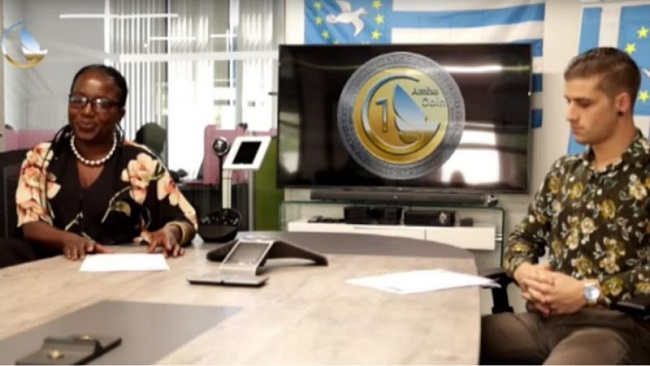Ambazonians sell cryptocurrency as replacement for CFA franc
Cameroonian separatists fighting for the independence of the self-declared state of Ambazonia have put their own cryptocurrency on sale to the general public.
“The initiative is geared towards helping with humanitarian side of things,” says Frank, one of the members of the AmbaCoin project who responded to press enquiries about the cryptocurrency, but wanted to remain anonymous. “That’s the idea behind it – to raise funds to support humanitarian efforts.”
It is hoped that the creation of a currency for so-called Ambazonia will also support efforts to have the breakaway state officially recognised as a country. Creating their own Ambazonian currency enables the separatists to move away from using the CFA franc.
“The idea of AmbaCoin was to get away from the CFA – we don’t see the CFA franc as a legitimate currency for Ambazonia,” says Frank. “If we want to be independent, we can’t pursue a French colonial currency.”
Cameroon’s currency is issued by the Bank of the Central African States which is in turn backed by the French government’s treasury. The CFA franc is pegged to the euro, however, and it has drawn the ire of activists in West and Central African countries in recent years, who have protested France’s continuing influence long after the end of colonialism.
How does it work?
AmbaCoin officially went on sale on 28 December with one AmbaCoin token equivalent to 25 US cents. Before the main “crowdsale” the token was offered through a “presale” with 10 percent of the AmbaCoins available. More than 30,000 AmbaCoins had been issued as of 1 January, according to the website.
There are 13 holders of AmbaCoin, according to an analysis available on the Bloxy website, which provides information on public blockchains. One digital wallet address holds almost 42 per cent of the existing AmbaCoins issued.
Supporters of Ambazonia can purchase AmbaCoins through a dashboard on the website. Users can use other cryptocurrencies such as Bitcoin, Litecoin or Dash to make transactions as well as traditional currencies, including euros, dollars, CFA francs, rand or rubles. The AmbaCoins then reside in an Ethereum digital wallet. The project describes the token being compatible with several existing cryptocurrency digital wallets.
The token itself is built upon existing Ethereum blockchain technology providing a decentralised public ledger. AmbaCoin’s whitepaper describes how transactions are completed using Ethereum’s system of “smart contracts” – a protocol aiming to enforce transactions without a third party.
AmbaCoin is based on the “proof-of-stake” architecture defining how block transactions are dealt with. This approach avoids the need for mining where computing power is used to run different cryptographic calculations.
How can AmbaCoin be used?
The project envisages a number of uses for AmbaCoin. The whitepaper describes how supporters can hold onto the token and watch its value appreciate over time, a strategy popularised by BitCoin enthusiasts where to “hodl” is to hold onto cryptocurrency rather than sell it. Furthermore, AmbaCoin can be traded to provide a return for investors, according to the project.
It also acts as a digitised form of a treasury bill – “eventually, the Ambazonian nation will purchase it” – and it can be used “to get access to national services”, according to the whitepaper. The AmbaCoin will not be pegged to any particular traditional currency and it aims to become particularly important for remittances from Africans in the diaspora.
Spending on potential humanitarian relief for the Anglophone regions will be decided by AmbaCoin’s board of directors, according to Frank. “They will make that decision,” he says, drawing particular attention to the plight of refugees and internally displaced people who have been hit by the worsening violence in Cameroon’s Anglophone regions.
The crisis that hit the North West and South West regions has already seen humanitarian fundraising efforts. The Cameroonian government in mid-2018 raised almost 20 million euros to help people hit by the fallout of what it says are “acts of terrorism” carried out by separatist groups.
Support from Ambazonian ‘government’
A number of different groups purporting to be the government of Ambazonia have emerged since the self-declaration of independence for Ambazonia in October 2017. The situation on the ground has also evolved, with rival separatist armed groups involved in fighting between themselves as well as with the Cameroonian security forces.
Yahoo.com





